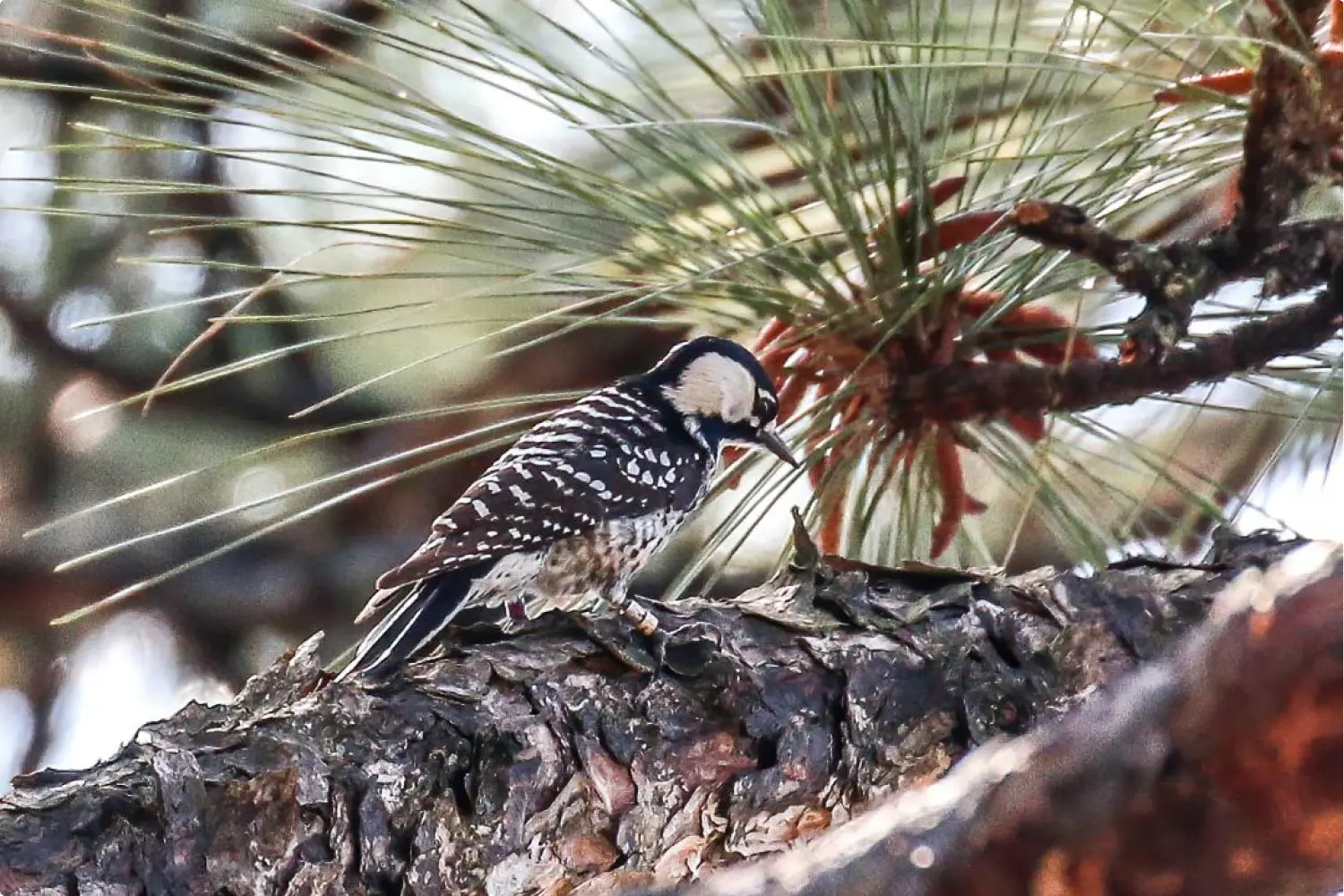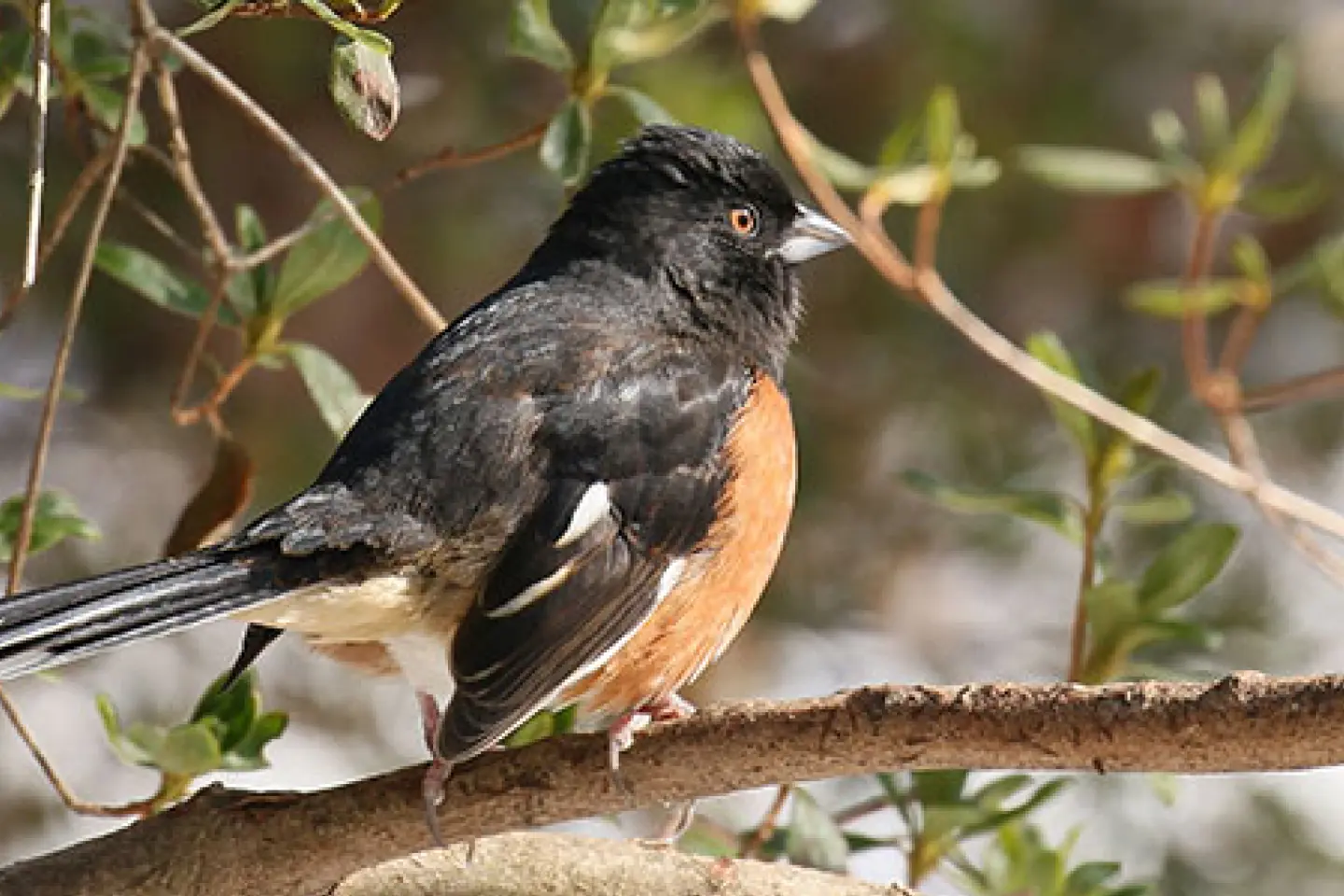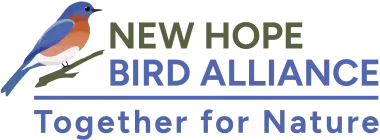Stay informed and in touch by receiving our newsletters
Ways you can help and how you can volunteer for them
Become a member through joining locally or through National Audubon
Schedule of monthly meetings and meeting recordings

Who We Are
Announcements
Durham UDO Public Hearing February 24 changed to Q&A
Launch of New Hope for Birds: Fund the Future campaign!
Dear New Hope Bird Alliance community: Thank you for everything you do for birds, nature, and the habitat that sustains us all. We are excited to announce a campaign to raise $200,000 over the next two years so we can hire our first full-time Executive Director. This important step will allow us to expand partnerships, strengthen our programs, and elevate our impact for bird and habitat protection across our region.
We hope you will consider making a gift, large or small, to support our transformative campaign and the future of birds in our community.
– Carol Hamilton, President, NHBA
Next membership meeting on March 5, 2026, 7:00 pm
Our speaker will be Tom Driscoll and the topic will be his birding travels. Location will be the Joslin Classroom at the NC Botanical Gardens (NCBG). This will be a hybrid meeting – use this link to join on Zoom.
Fall 2025 Grant Awardee Information
NHBA awarded funds to the North Carolina Botanical Garden to assist with the management of invasive species on their properties followed by the planting and reintroduction of native species. Additional funds were provided to Bluestem Conservation Cemetery to continue restoration of wet meadow areas and native grassland of 35 acres of the 87-acre property. See more information about these grants here. NHBA is suspending grant awards while we work on our Fund the Future campaign.
Celebrate 50 Years of NHBA with New, Special-Edition Merch!
Since 1975, the New Hope Bird Alliance has been striving to protect birds, wildlife, and their local habitats through conservation, education, advocacy, and outdoor enjoyment. Help us celebrate 50 years of New Hope Bird Alliance in style with our special-edition design by local artist and birder, Jenny Deview, featuring the Eastern Bluebird, Common Yellowthroat and American Redstart. Shop Jenny’s wonderful artwork on shirts, sweatshirts, totes, mugs and more here at our Bonfire Shop. A portion of every purchase directly supports NHBA and the conservation work we do!
How to help birds in every season.
Birds need our help no matter what the season is. But each season brings its own challenges for birds. Visit our web page, Ways to make habitat safe and friendly for wildlife, and be sure to note any special considerations for the birds during different seasons, such as keeping lights out during migration.
Upcoming Events
- Thursday, 05 March
-
-
NHBA Membership Meeting
7:00 pm to 8:30 pmTom Driscoll, birding travels. Joslin Classroom at the NC Botanical Garden. This will be a hybrid meeting - use this link to join on Zoom.
-
- Sunday, 08 March
-
-
Chapel Hill Bird Club Outing
8:30 am to 11:30 amFor questions, contact Jim Capel at [email protected]. The walk will be Flat River Waterfowl Impoundment, about 0.4 miles north of Jock Road. The coordinates are 36.127667, -78.832790.
See more info at: Chapel Hill Bird Club WalksNew Hope Bird Alliance co-sponsors these outings.
-
- Wednesday, 11 March
-
-
NHBA Bird Outing
7:30 am to 10:30 amContact David Anderson at [email protected] with questions. The location will be Brumley North: 3620 Old State Hwy 10, Chapel Hill, NC 27514.
This outing is sponsored by the New Hope Bird Alliance (formerly New Hope Audubon).
Outings usually last 2-3 hours. No reservations or sign-up needed. If there is a large turnout for any particular outing, we may split into two groups. We do recommend carpooling for families or friend pods; while we love pets, there is a ‘no-pet’ policy for bird outings. New birders and birders of all skill levels are welcome.
Please wear long pants, socks, and sturdy shoes (ticks and chiggers may be present). Sun and bug protection are also recommended. Bring snacks and water if you like. Heavy rain will result in cancellation.
-
Join Us In Our Activities

Love Wildlife? Give Back.
New Hope Bird Alliance depends on the community to help fund meetings, educational resources, and conservation efforts. Make a donation* to help protect North Carolina’s wildlife for years to come. Thank you for your support!
*Donations are tax-deductible to the full extent provided by law.
